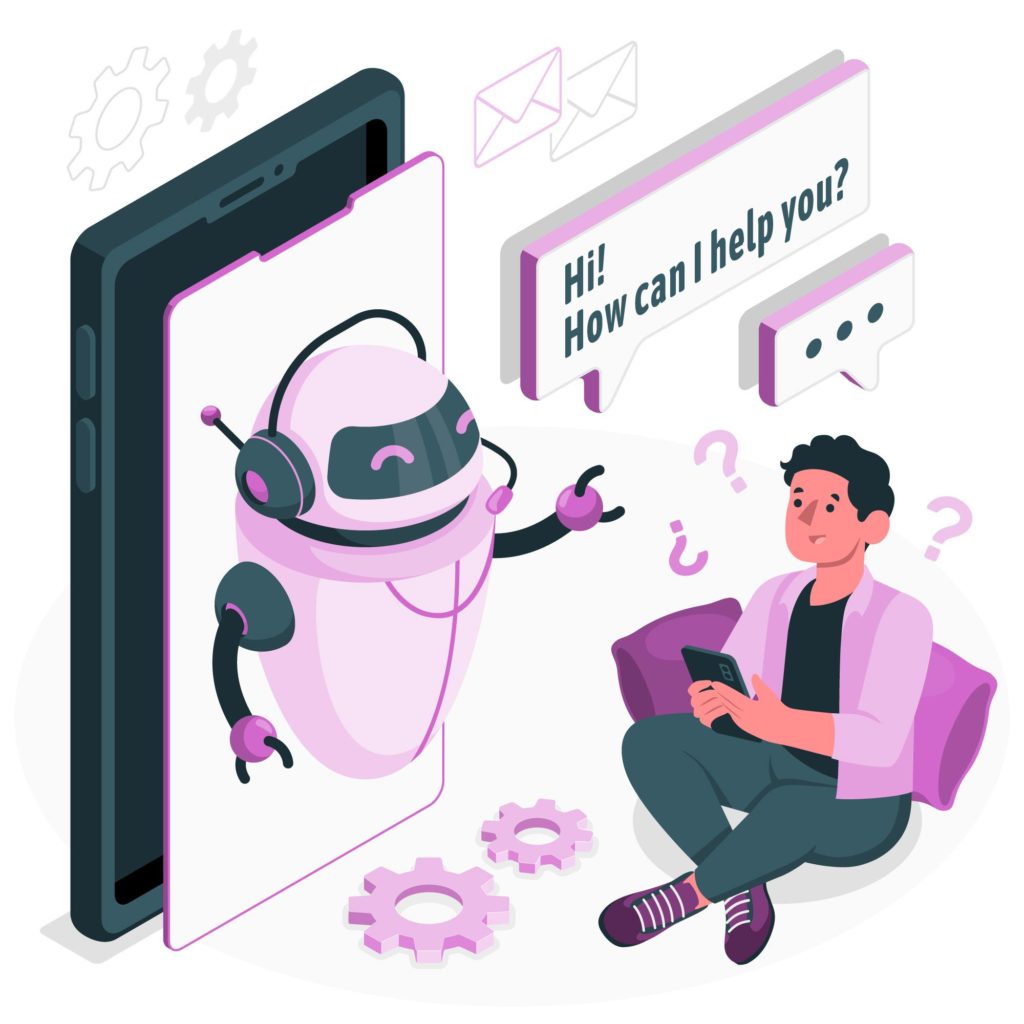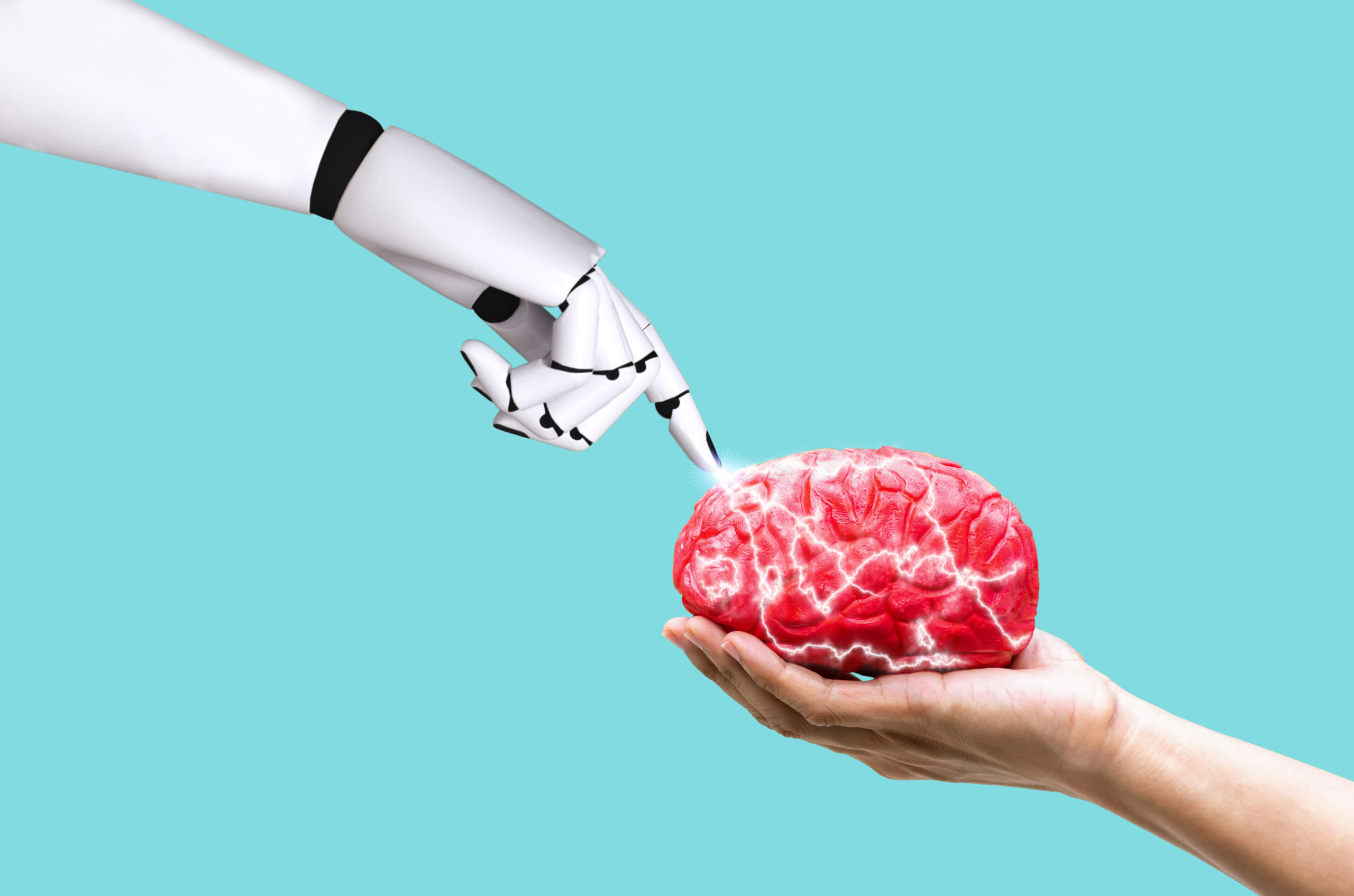Is it possible to have a personal assistant on our smartphones and other devices that can help us keep a track of our mental health? Or help us identify any subtle changes in our mood or how we react to a specific situation? Yes, AI indeed can help in making our mental health better. The innovative tech of Artificial Intelligence can play an active role in diagnosing any mental health issue we face.
In addition, AI can help us suggest treatments for the same. These are exciting times that we are in where AI for mental health is slowly becoming a reality.
In a way, this is the need of the hour, too, as more and more mental health issues are being identified globally. The acceptance for the same is also rising. We no longer feel the need to skirt the problems to sound ‘’cool’’ in front of our friends and family.
The National Alliance on Mental Illness has reported that 1 in 5 US adults suffer from mental health issues at least once in their lifetime. In the UK, too, mental health is the single most significant cause of disability. NHS England spent close to £9.7 billion on Mental Health care. We cannot compare the mental agony a patient and their family members go through to the monetary measures taken by these institutions.
How can AI help our mental health and well-being?
AI runs on the information it is fed on or the data it collects, especially in machine learning. The data gathered by our smart devices is increasing exponentially along with the ever-increasing number of daily interactions. This helps in increasing the capabilities of the machine learning systems.
When we become open to disclosing our data analyzed for our mental wellness, it benefits the AI tremendously. We must do the data sharing only on platforms we trust.
IBM research
The team at IBM used Machine Learning and Natural Language Processing to analyze the transcript and audio from numerous hours of psychiatric sessions. This helps the therapists predict and monitor a range of mental health conditions, including psychosis and depression.
Guillermo Cecchi at IBM Research shared a fascinating prediction. Which stated that what we write and say will indicate our mental and physical health in the coming years.
Research from Havard
Researchers from Havard and the University of Vermont have confirmed that it is not just our speech patterns that can help. For example, the photos we post on Instagram can assist in analyzing predictive markers of depression. They used colour analysis, metadata, and algorithmic face detection to identify those participants who may suffer from mental health issues. With machine learning, the team got a rate of 70% in detecting a problem.
To read about the developments of AI in the Voice industry, click here.
Why is AI promising in the field of mental health?
AI can analyze humongous quantities of data which could be of varied types. It also constructs a predictive pattern that is impossible for human beings even if they are highly trained. This doesn’t mean therapists won’t be needed in the future. This innovation can help patients and therapists by possibly detecting issues earlier and help with a conducive diagnosis and medication.
AI, Mental health, and Chatbot

AI tools can help in creating new treatment protocols. Like Woebot, an AI-based chatbot app designed by Alison Darcy, a clinical psychologist. The Chatbot offers cognitive behaviour therapies (CBT) to its users by asking a series of pre-decided questions in a conversational form.
This facility is available anytime, which is not possible with clinical therapy sessions. It could help many of us who don’t want to approach therapists. One major reason is the fear of being judged or any social stigma attached to asking for clinical therapy.
We all understand the rising cases of stress and stress-related diseases; that can affect anyone and relate to family, work or financial pressures. According to the survey by The American Psychological Association, about 80% of respondents suffer from at least one stress symptom in the past month. AI has the potential to detect and suggest treatment for people who are suffering from high stress-related issues.
The Ethical Angle
We are faced with more ethical dilemmas as AI becomes a part of our lives more and more. For example, we may have to decide how much data our smart devices and social media platforms can gather about us. The companies will also have to develop more robust, secure systems. To protect this data from gaining and maintaining public trust.
At SkilloVilla, we make sure to educate you in the right direction regarding AI and machines with our well-constructed Data Science and Machine Learning career track. We have live classes conducted by the Industry masters, Industry use cases, and concept videos to make your learning exciting and all-encompassing. In addition, the placement support team at SkilloVilla can help you get that foot in the door with our top 300+ partner companies by preparing you for job interviews and building a solid resume.
If this interests you, you can know more about SkilloVilla’s curriculum and the courses offered; feel free to reach out at www.SkilloVilla.com.
